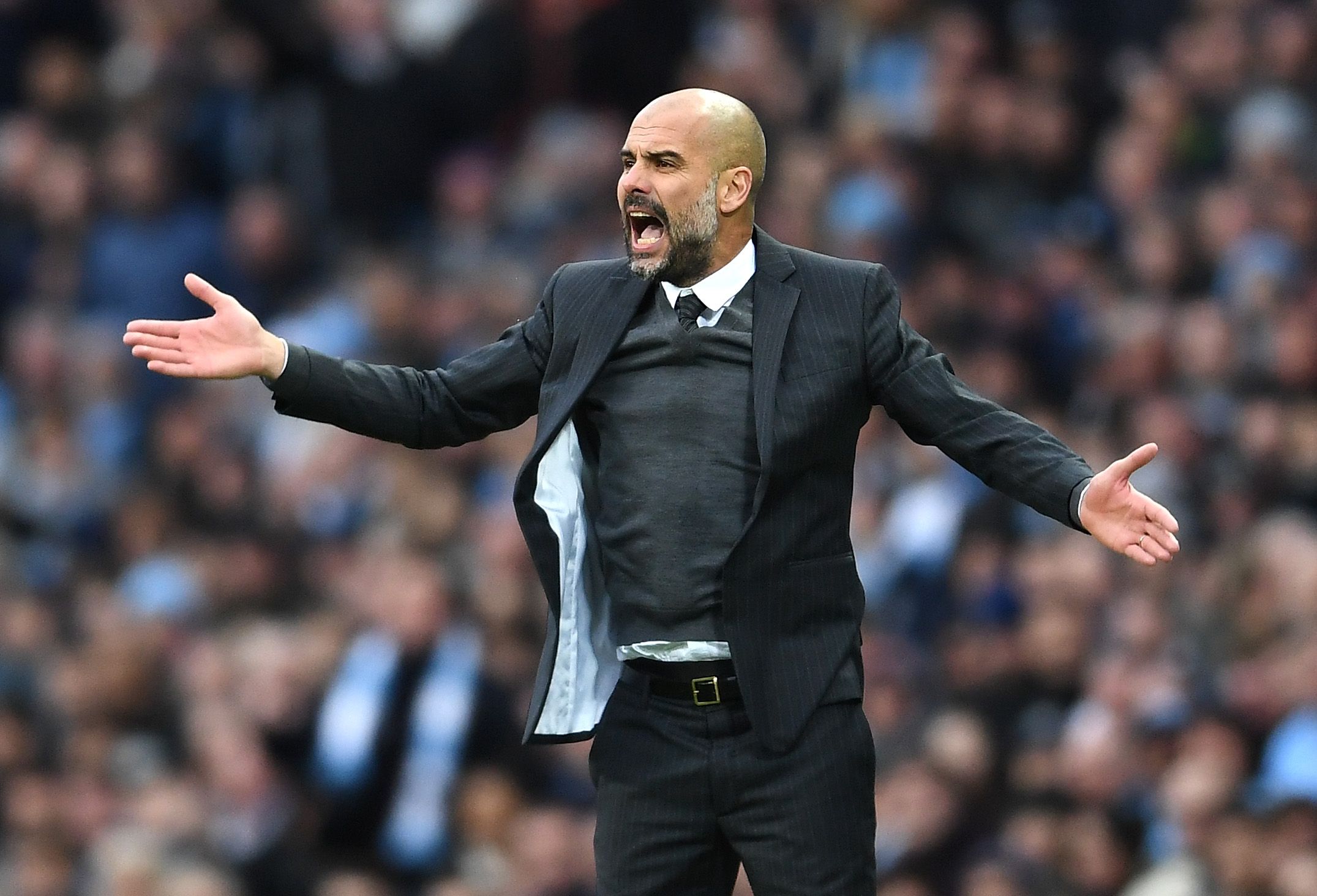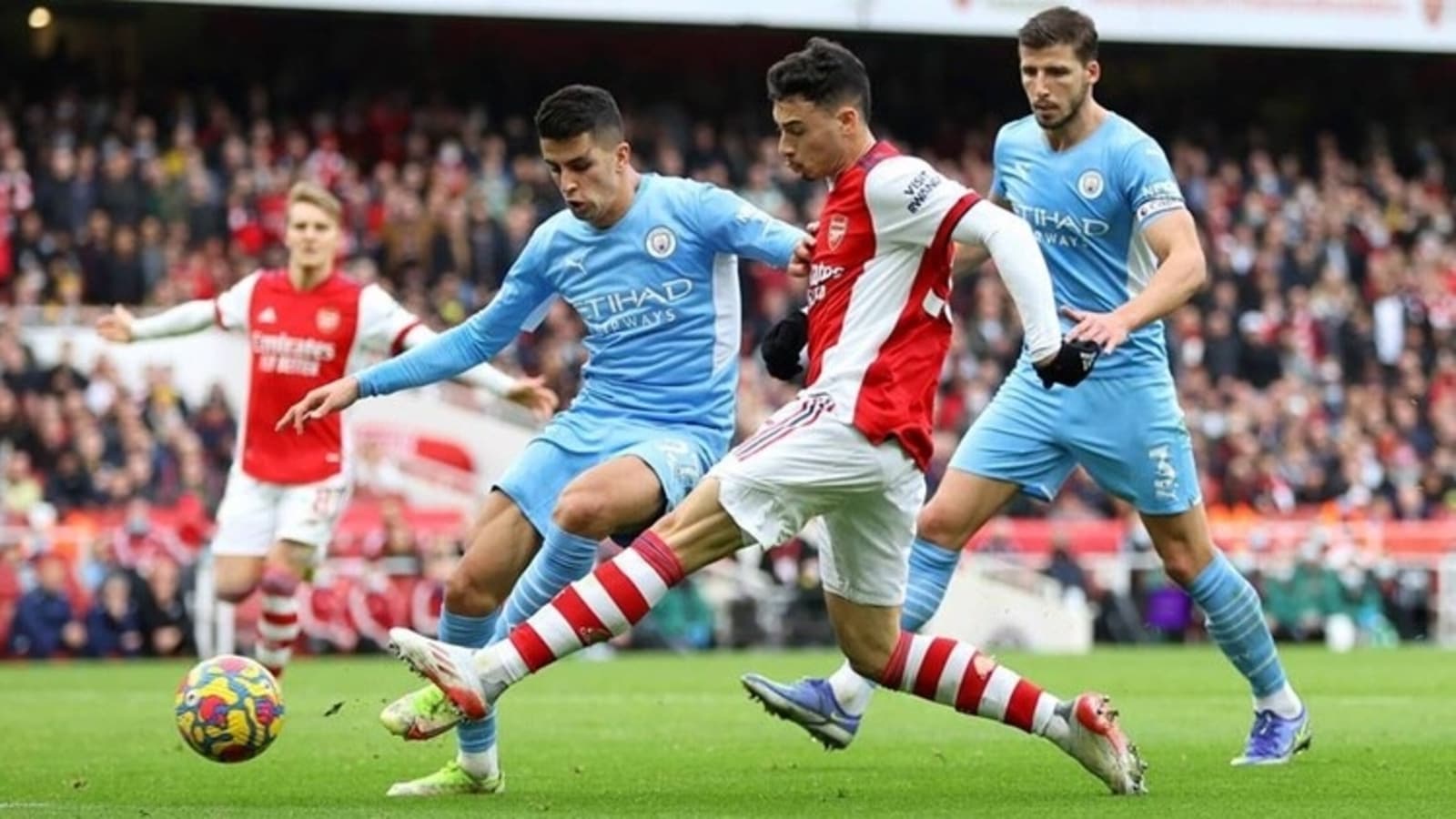Manchester City coach Pep Guardiola’s impact transcends mere wins; it’s a revolution in Premier League tactics. His meticulous approach, combined with a carefully curated coaching staff, has transformed Manchester City into a dominant force. This deep dive explores Guardiola’s managerial philosophy, the evolution of City’s playing style under his leadership, and the crucial role of his coaching team in player development and recruitment.
From his tactical innovations to the challenges faced in managing a squad of elite athletes, we examine the multifaceted aspects of Guardiola’s tenure, showcasing the intricate interplay between coaching strategy, player performance, and the overall success of the club. We delve into the specific contributions of assistant coaches, the criteria used for player recruitment, and how Guardiola adapts his methods to maximize individual player potential.
Manchester City’s Coaching Staff: A Deep Dive into Pep Guardiola’s Influence: Manchester City Coach
Manchester City’s consistent success under Pep Guardiola is not solely attributable to the talent on the pitch; it’s a testament to the meticulously crafted coaching structure and the innovative tactical strategies employed by the entire coaching staff. This article delves into the composition of the coaching team, Guardiola’s managerial style, the evolution of City’s tactics, and the overall impact of the coaching staff on player development and recruitment.
Current Manchester City Coaching Staff
The Manchester City coaching staff is a blend of experienced professionals with diverse backgrounds, each contributing their expertise to create a cohesive and highly effective unit. Their roles are interdependent, ensuring a seamless flow of information and a consistent approach to player development and tactical implementation.
| Name | Role | Previous Experience | Notable Achievements |
|---|---|---|---|
| Pep Guardiola | Manager | FC Barcelona, Bayern Munich | Multiple league titles, Champions League victory |
| Juanma Lillo | Assistant Manager | Various roles in Spain and Mexico | Known for his offensive tactical philosophies |
| Rodolfo Borrell | Assistant Coach | Barcelona Academy, various roles at Manchester City | Significant contribution to youth development at City |
| Carles Planchart | Assistant Coach | Various roles at Manchester City | Strong expertise in tactical analysis and implementation |
Pep Guardiola’s Managerial Philosophy and Tactical Approaches
Pep Guardiola’s philosophy centers on possession-based football, emphasizing short, precise passing, high pressing, and intricate movement off the ball. His tactical approaches are incredibly fluid, adapting to opponents and exploiting their weaknesses. He frequently employs a 4-3-3 formation, but this is often a dynamic shape that morphs based on the game situation.
His emphasis on positional play and intelligent movement ensures that City dominates possession and creates numerous scoring opportunities.
Check what professionals state about 555 score live premier league and its benefits for the industry.
Comparison of Guardiola’s Management Style with Other Prominent Premier League Managers
Guardiola’s style contrasts sharply with some other Premier League managers. While some prioritize direct, counter-attacking football, Guardiola focuses on meticulous build-up play and control of the game.
- Guardiola vs. Jürgen Klopp: Guardiola’s possession-based approach contrasts with Klopp’s high-intensity, gegenpressing style.
- Guardiola vs. José Mourinho: Guardiola’s focus on attacking fluidity differs from Mourinho’s more pragmatic and defensively-minded approach.
- Guardiola vs. Mikel Arteta: Arteta, a former Guardiola assistant, shares similarities in philosophy but has developed his own distinct style.
Manchester City’s Tactical Evolution Under Guardiola
Since Guardiola’s arrival, Manchester City’s tactical approach has undergone a significant evolution. Initially focusing on a more positional 4-3-3, the team has adapted and refined its style, incorporating elements of positional fluidity and dynamic formations. This adaptation reflects Guardiola’s capacity to adjust his strategies based on the strengths and weaknesses of his squad and opponents.
A timeline illustrating these changes would show a gradual shift from a more rigid positional system to a more fluid and adaptable style, incorporating variations in pressing triggers, attacking movements, and defensive organization.
Impact of Guardiola’s Coaching on Player Performance

Guardiola’s coaching has demonstrably enhanced the performance of numerous Manchester City players. His emphasis on technical proficiency, tactical awareness, and positional discipline has elevated players to new heights.
For example, Raheem Sterling’s development under Guardiola is a case in point. Sterling’s improvement in decision-making, positional sense, and finishing ability showcases the transformative impact of Guardiola’s coaching. Similarly, the improvements seen in players like João Cancelo demonstrate the coach’s ability to adapt his training methods to suit individual player strengths and weaknesses.
Hypothetically, if a player exhibited exceptional dribbling skills but lacked tactical awareness, Guardiola might focus on integrating that player’s strengths into the team’s overall tactical framework, emphasizing the importance of decision-making in possession and off-the-ball movement to complement the player’s dribbling talent.
The Coaching Staff’s Role in Player Recruitment
The Manchester City coaching staff plays a pivotal role in identifying and recruiting new players. Their input is crucial in assessing a player’s tactical suitability, technical ability, and overall fit within the team’s culture.
The criteria used often include technical skills, tactical understanding, physical attributes, and personality. Successful signings under Guardiola, such as Rodri and Ruben Dias, exemplify the coaching staff’s ability to identify players who seamlessly integrate into City’s system.
- Rodri: His passing range and defensive awareness perfectly complemented City’s possession-based style.
- Ruben Dias: His leadership qualities and defensive solidity provided a much-needed stability to the backline.
Challenges Faced by the Manchester City Coaching Staff
The Manchester City coaching staff faces numerous challenges, including managing the expectations and egos of high-profile players, maintaining team morale during periods of adversity, and adapting their tactical approaches to counter the strategies of diverse opponents. These challenges require exceptional leadership, communication, and tactical flexibility.
Overcoming these challenges involves fostering a strong team spirit, providing individualized attention to players, and constantly adapting training methods and tactical strategies. A visual representation of these pressures might depict a complex web of interconnected challenges, highlighting the constant need for balance and adaptability within the coaching team.
Pep Guardiola’s influence on Manchester City is undeniable. His tactical genius, combined with the expertise of his coaching staff, has not only delivered trophies but also redefined the club’s identity. The ongoing evolution of their playing style, coupled with their meticulous approach to player development and recruitment, positions Manchester City for continued success in the years to come. The analysis presented highlights the multifaceted nature of elite-level coaching, emphasizing the importance of adaptability, strategic planning, and the ability to cultivate a winning culture.


